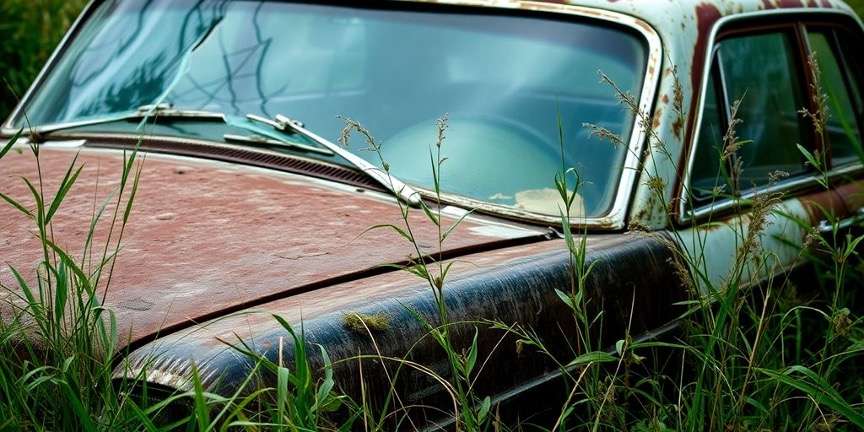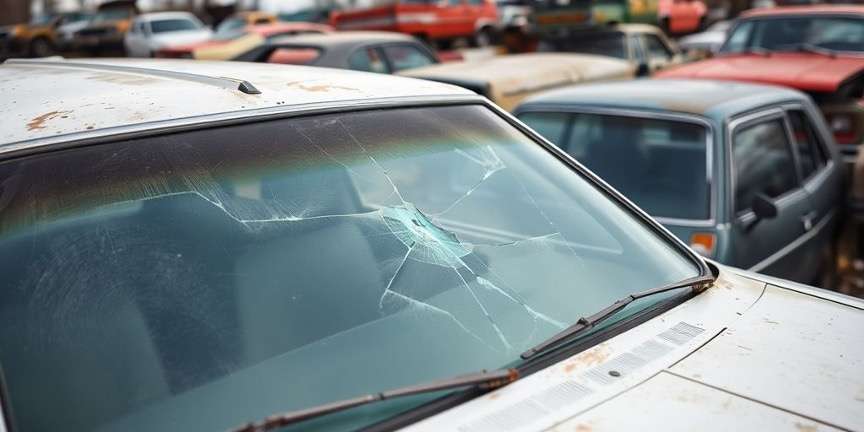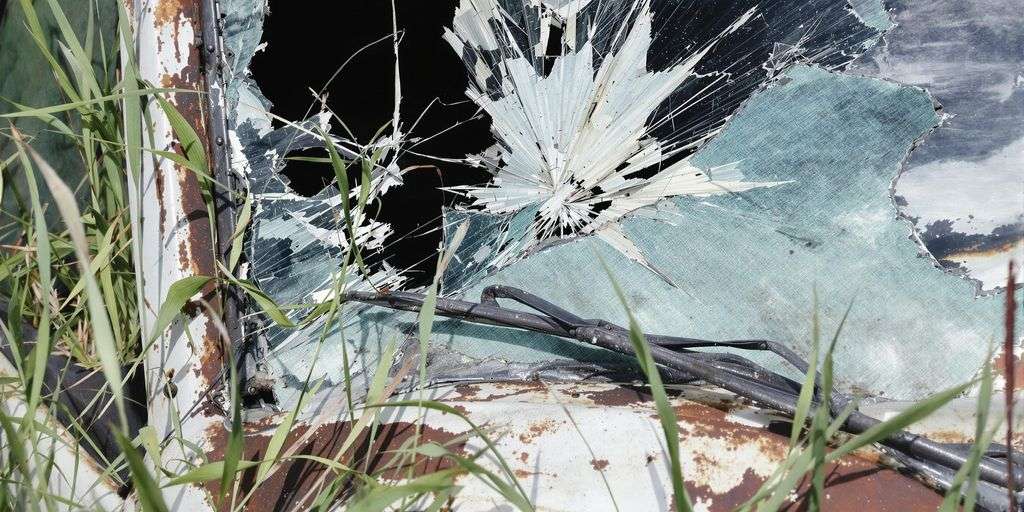Key Takeaways
- You can sell a junk car with a broken windshield, but having the car title is crucial.
- Different states have specific rules for selling junk cars, so check local regulations.
- Recycling junk cars is good for the environment, reducing waste and saving resources.
- Selling junk cars isn't just about getting rid of them; you can actually make some money.
- The market for junk cars is growing, with more people interested in recycling and reusing auto parts.
Understanding the Legal Requirements for Selling a Junk Car

Importance of Having the Car Title
When it comes to selling a junk car, the car title is your golden ticket. Without it, transferring ownership is impossible. It’s like trying to sell a house without the deed. The title proves you own the car, and in most states, you can't legally sell it without one. If you've misplaced it, don't panic. Reach out to your local Department of Motor Vehicles (DMV) to get a duplicate. It's a hassle, but necessary.
State-Specific Regulations for Junk Car Sales
Selling a junk car isn’t just about handing over the keys and getting cash. Different states have their own rules. Some might require emissions tests, while others might have specific paperwork like a release of liability form. It’s a good idea to check with your state’s DMV to know what’s needed. This way, you won't run into any surprises that could delay the sale.
Completing a Bill of Sale and Release of Liability
A bill of sale is more than just a piece of paper. It outlines the terms of the sale and includes details like the agreed price and car condition. This document is crucial because it protects both you and the buyer in case something goes wrong. After the sale, make sure to file a release of liability with your DMV. This step is important to ensure you’re not held responsible for anything that happens with the car after it leaves your possession.
Selling a junk car isn't as simple as it sounds. You’ve got to dot your i’s and cross your t’s, especially when it comes to the paperwork. Missing a step could mean trouble down the line, so it’s worth taking the time to get it right.
Environmental Benefits of Recycling Junk Cars
Reducing Waste and Conserving Resources
Recycling junk cars is not just about getting rid of an old vehicle; it's about making a positive impact on the planet. By recycling, we conserve natural resources. When a car is recycled, its metal parts are melted down and reused, which reduces the need for mining new materials. This process also cuts down on the energy required to manufacture new metals. Recycling junk cars is a straightforward way to conserve resources and reduce environmental strain.
Proper Disposal of Hazardous Materials
Junk cars often contain hazardous materials like oil, coolant, and batteries. These substances can leak into the ground, contaminating soil and water. Recycling ensures these materials are disposed of properly, preventing environmental damage. During the recycling process, experts remove and safely handle these hazardous components. This step is crucial for protecting our ecosystems from harmful chemicals.
Contributing to a Cleaner Environment
By recycling junk cars, we contribute to a cleaner environment. Abandoned vehicles can become eyesores and breeding grounds for pests. Additionally, the rusting metal can release particles into the air, affecting air quality. Recycling helps mitigate these issues by ensuring that cars are disposed of responsibly. It not only improves the aesthetics of our neighborhoods but also supports a healthier planet.
Recycling junk cars is a simple yet effective way to make a difference. It helps keep our environment clean and safe for future generations.
Maximizing the Value of Your Junk Car
Assessing the Car's Condition and Salvageable Parts
Before you jump into selling your junk car, take a good look at its overall condition. What parts are still in decent shape? Maybe the engine still runs, or the transmission is in good condition. These parts can be worth quite a bit on their own. Knowing the condition of your car helps you understand its value better. Don't forget to check smaller parts like mirrors or radios; they might not seem like much, but they add up.
Researching Market Demand and Pricing
Once you know what you've got, it's time to see what the market thinks. Look up similar cars online to get an idea of what people are paying. This research will help you set a fair price when you start talking to buyers. Remember, the prices for scrap metal can change, so keep an eye on those trends too.
Negotiating with Potential Buyers
When you're ready to sell, don't just take the first offer that comes your way. Be prepared to haggle a bit. Understanding your car's worth and the current market will give you the upper hand. Sometimes, a little back-and-forth can lead to a better deal. Be open to negotiating terms like towing fees, which might sweeten the deal for you.
Selling a junk car isn't just about getting rid of an old vehicle; it's about unlocking hidden value. With a little effort, you can turn that rusty car into cash.
Preparing Your Junk Car for Sale
Cleaning and Removing Personal Belongings
Before you even think about selling, give your car a good clean. A cleaner car is more appealing and can make a big difference in how it's perceived by potential buyers. Start by removing all personal items. It’s surprising how much stuff accumulates over time—old receipts, forgotten CDs, that one glove you thought you lost. After clearing it out, vacuum the interior and wipe down surfaces. If you're feeling ambitious, a quick wash of the exterior wouldn’t hurt either. This step not only makes the car look better but can also help you spot any issues you hadn’t noticed before.
Gathering Necessary Documentation
Next up, paperwork. Selling a car, even a junk one, means you need to have your documents in order. You'll need the car title, first and foremost. This proves you own the car and have the right to sell it. If you can't find it, your local DMV can help you get a duplicate. Besides the title, gather maintenance records if you have them. These can show the car’s history and might help during negotiations. Don't forget a bill of sale and a release of liability form. These will protect you legally once the car is out of your hands.
Ensuring Safe Transport of the Vehicle
Finally, think about how the car will get to its new home. If it’s still running, great! You might be able to drive it there. But if not, you’ll need a plan. Some buyers offer free towing, which is a nice perk. If not, you might need to arrange for a tow truck yourself. Make sure the car is safe to move—secure any loose parts and check that everything is stable. No one wants a fender flying off on the highway. By planning the transport ahead of time, you can avoid last-minute headaches and make the sale go smoothly.
Finding the Right Buyer for Your Junk Car
Exploring Online Marketplaces and Platforms
So, you've got a junk car sitting around, and you're thinking about selling it. Online marketplaces are a great place to start. Websites like Craigslist and Facebook Marketplace let you reach a wide audience. Be sure to include detailed info about your car's condition, along with some good photos. Transparency is key to attracting serious buyers.
Comparing Offers from Multiple Buyers
Don't just settle for the first offer you get. Reach out to multiple buyers to see who gives you the best deal. This is especially true if you're looking for the top buyers offering the highest cash for junk cars. Some might offer perks like free towing, which can save you a few bucks.
Understanding Towing and Payment Terms
Before you finalize any deal, make sure you understand the towing and payment terms. Some buyers might offer free towing, while others might not. Also, clarify how and when you'll get paid—cash, check, or bank transfer. Knowing these terms upfront can save you from any unpleasant surprises later on.
Finding the right buyer for your junk car isn't just about getting the highest offer. It's also about ensuring a smooth transaction, from towing arrangements to payment methods. Take your time, do your research, and you'll be on the right track to turning that old car into cash.
Common Myths About Selling Junk Cars

Myth: Junk Cars Have No Value
Many folks think that if a car is labeled as “junk,” it's worthless. But that's not true. Even a car that's been sitting in the driveway for years can still have value. Parts like the engine, transmission, and even the metal body can be sold separately. Some buyers are interested in specific components, while others focus on the raw materials. It's a common misconception that a car must be complete to be scrapped. Scrap buyers focus on the materials and parts still present in the vehicle, regardless of its condition.
Myth: Selling a Junk Car is Too Complicated
You might think selling a junk car is a hassle, but it's often easier than selling a working vehicle. You don't need to worry about repairs or making it look presentable. Most junk car buyers handle the paperwork and offer free towing. All you need is the car title and possibly a bill of sale. It's a straightforward process, and many companies are eager to make it as simple as possible for you.
Myth: Only Newer Cars Can Be Sold
This myth is quite common, but it's simply not true. Age doesn't matter when it comes to selling junk cars. Whether your car is a decade old or just a few years past its prime, there's likely a buyer interested in it. Older cars may even have parts that are in demand due to their rarity. Plus, the metal and other materials are always valuable. Don't let the age of your car deter you from exploring its potential worth.
People often underestimate the value of their old cars. Even if it seems like a pile of rust, there's a good chance someone out there is willing to pay for it. The key is to understand what your car has to offer and find the right buyer.
The Growing Market for Junk Car Sales
Rise of Eco-Consciousness and Sustainability
In recent years, people have become more aware of their environmental impact, and selling junk cars has become a popular way to promote sustainability. Instead of letting old cars rust away, owners are choosing to sell them, which not only helps the environment but also puts some cash in their pockets. Selling a junk car is not just about money; it's about contributing to a cleaner planet. By recycling car parts and ensuring the proper disposal of hazardous materials, sellers play a part in reducing waste and pollution.
Demand for Recycled Auto Parts
The demand for recycled auto parts is on the rise, driven by both economic and environmental factors. Recycled parts are often cheaper than new ones and can be just as reliable, making them an attractive option for car owners on a budget. Additionally, using recycled parts reduces the need for new manufacturing, which helps conserve resources and lower emissions. For junk car owners, this means there's a market eager for parts from their old vehicles.
Economic Benefits of Automotive Recycling
Automotive recycling offers significant economic benefits. It creates jobs in the recycling and manufacturing sectors and reduces the need for raw materials, which can be costly to extract and process. Moreover, programs like the financial incentives for trading in older cars for cleaner vehicles further boost the market for junk car sales. By participating in this recycling process, sellers not only benefit financially but also support broader economic and environmental goals.
Selling your junk car isn't just a personal gain; it's a step towards a sustainable future. By choosing to recycle, you contribute to a cycle that benefits the economy and the planet. It's a win-win situation for everyone involved.
Conclusion
So, can you sell a junk car with a broken windshield? Absolutely. It's all about knowing the ropes. Make sure you have your paperwork in order, like the car title and any necessary forms. This keeps things legit and smooth. Don't forget to check your state's rules, as they can vary. Selling your junk car isn't just about clearing space or making a quick buck. It's also a chance to do something good for the environment. By recycling, you're helping cut down on waste and pollution. Plus, with the right buyer, you might even get a decent deal. Just remember to be upfront about your car's condition and shop around for the best offer. In the end, selling a junk car can be a win-win for you and the planet.
Frequently Asked Questions
Can I sell my junk car if it has a broken windshield?
Yes, you can sell a junk car with a broken windshield. Many buyers are interested in the parts or scrap metal value, so a broken windshield might not be a deal-breaker.
What documents do I need to sell my junk car?
You'll need the car title to prove ownership. It's also helpful to have a bill of sale and any maintenance records. Check with your local DMV for specific requirements.
How can I find out how much my junk car is worth?
You can research online to find out the current value of similar junk cars. Consider the car's condition, make, model, and any salvageable parts.
Is it better to sell my junk car as a whole or in parts?
Selling parts separately might get you more money if the parts are in good condition. However, selling the car as a whole is quicker and less hassle.
What should I do to prepare my car for sale?
Remove personal items, clean the car, and gather all necessary documents. Make sure the car is safe for transport, especially if it doesn’t run.
Are there any environmental benefits to selling my junk car?
Yes, recycling your junk car helps reduce waste and conserves resources. It ensures proper disposal of hazardous materials, contributing to a cleaner environment.



